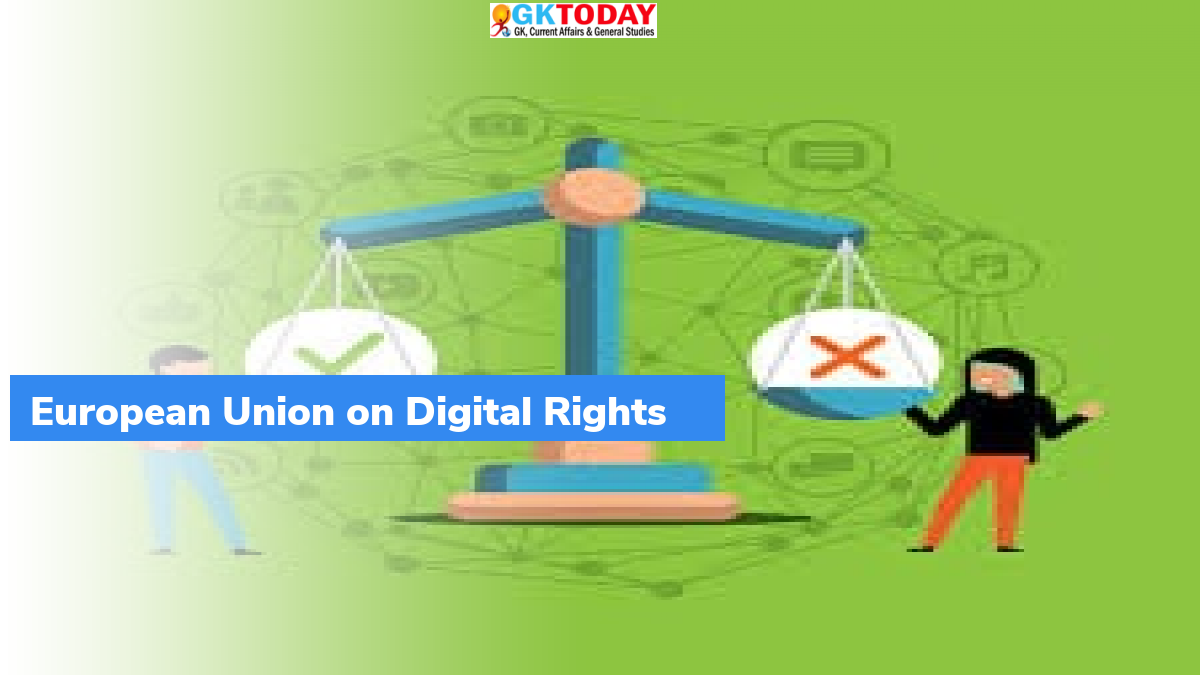EU Declaration on Digital rights and principles
The European Union is first in the world to propose digital rights. The rights aim to support democracy and support people’s rights. It ensures a safe online environment.
About the EU Digital Rights
- EU digital rights cover digital devices as well. It ensures the sustainability and green transition goals of the bloc.
- It defines illegal offline and illegal online activities.
- It will act as a good guide for policy makers to decide on technological solutions.
- It places people at the centre.
Six principles
The draft Digital Rights and Principles puts forward the following six principles:
- To promote the sustainability of digital future
- To increase safety, empowerment and security of individuals
- To foster participation in digital public space
- To ensure freedom of choice online
- To support solidarity and inclusion
- To put people and their rights in the centre of digital transformation
Objective of the digital rights
The rights aim to provide affordable digital connectivity to all its member countries. Also, it aims to increase the speed of the internet. The rights will make the class rooms well equipped and will hire digitally skilled teachers. Also, the digital rights will provide seamless access to public services. It will provide safe environment to children. The digital rights will control how the personal data are used and with whom the personal data is shared. It will gather easy – to – understand information on digital products.
Key Digital Rights
Right to use digital content. Right to access electronic devices like computers. Right to privacy. Right to create digital content. Right to express ideas digitally. Right to report what seems inappropriate.
What are digital rights?
These rights allow people to create, use, access and publish digital media and also use computers and other communication networks. Digital rights are related to freedom of privacy and expression.
Digital Responsibilities of world countries
To respect other’s opinions. To abide by the Intellectual Property Laws. To follow codes of conduct and rules. To respect others ideas.
Month: Current Affairs - January, 2022
Category: International / World Current Affairs


